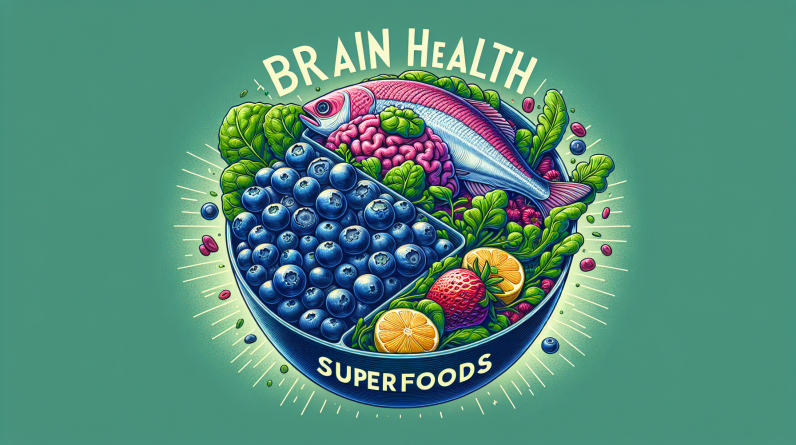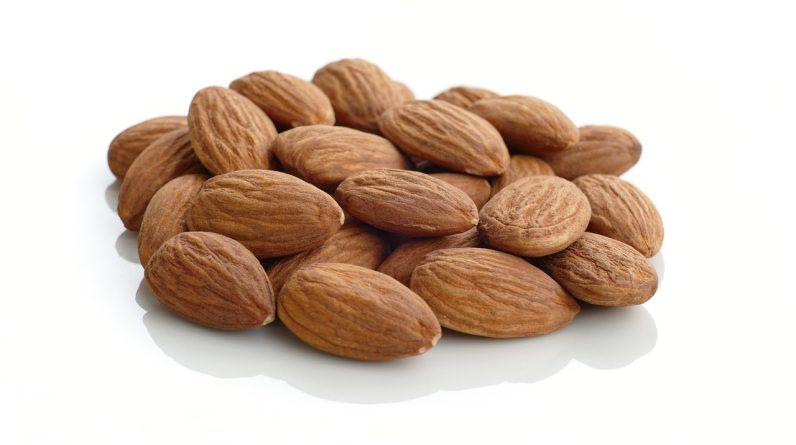
In this article, you will discover a powerful lineup of superfoods that battle the herpes virus. Living with this persistent virus can be challenging, but incorporating certain superfoods into your diet can provide relief and even prevent outbreaks. From antioxidant-rich berries to immune-boosting garlic, these superfoods may become your allies in fighting against herpes. So, get ready to supercharge your meals and strengthen your body’s defenses as we explore the incredible world of superfoods that battle the herpes virus. Let’s dive in!
What is the Herpes Virus?
An Overview of the Herpes Virus
The herpes virus is a common virus that can cause infections in humans. There are different types of the herpes virus, including herpes simplex virus 1 (HSV-1), herpes simplex virus 2 (HSV-2), and herpes zoster (varicella-zoster virus). These viruses can cause a range of symptoms and can be transmitted through direct contact with infected individuals or through contact with their bodily fluids.
Common Symptoms of Herpes
The symptoms of herpes can vary depending on the type of virus and the individual. However, some common symptoms include the presence of painful sores or blisters on the skin or mucous membranes, itching, tingling, and a general feeling of malaise. It is important to note that symptoms may not always be present, and some individuals may experience asymptomatic outbreaks.
Transmission and Prevalence
The herpes virus is highly contagious and can be easily transmitted through direct contact with an infected person’s skin or mucous membranes. This can occur through sexual contact, oral contact, or sharing personal items such as towels or utensils. The herpes virus is very common, with a significant portion of the population infected. According to the World Health Organization, an estimated 3.7 billion people under the age of 50 have HSV-1, and 417 million people have HSV-2.
Understanding the Different Types of Herpes
Herpes Simplex Virus 1 (HSV-1)
HSV-1 is the most common type of herpes virus, and it is primarily responsible for oral herpes outbreaks. This type of herpes is often transmitted through oral contact, such as kissing or sharing utensils. HSV-1 can cause cold sores or fever blisters on the lips or around the mouth, but it can also lead to genital herpes through oral-genital contact.
Herpes Simplex Virus 2 (HSV-2)
HSV-2 is primarily responsible for genital herpes outbreaks. This type of herpes is usually transmitted through sexual contact, including vaginal, anal, or oral sex. Genital herpes can cause painful sores or blisters on the genitals, buttocks, or thighs. It is important to note that both HSV-1 and HSV-2 can cause oral and genital herpes.
Herpes Zoster (Varicella-Zoster Virus)
Herpes zoster, also known as shingles, is caused by the varicella-zoster virus, which is the same virus that causes chickenpox. After a person recovers from chickenpox, the virus remains dormant in the body and can reactivate years later, causing shingles. Shingles typically presents as a painful rash on one side of the body, along with flu-like symptoms.
Other Types of Herpes
In addition to HSV-1, HSV-2, and herpes zoster, there are other types of herpes viruses that can cause infections in humans. These include herpes simplex virus 3 (HHV-3), which causes chickenpox and can lead to shingles later in life, herpes simplex virus 4 (HHV-4 or Epstein-Barr virus), which causes mononucleosis, and herpes simplex virus 5 (HHV-5), which causes cytomegalovirus infections.
The Importance of a Healthy Diet in Managing Herpes
The Role of Diet in Boosting Immunity
Maintaining a healthy diet is essential for overall well-being and can have a significant impact on the immune system’s ability to fight off infections. A diet rich in vitamins, minerals, and antioxidants can support immune function and help manage the symptoms of herpes. Consuming a variety of nutrient-dense foods can provide the body with the necessary tools to fight off the herpes virus and reduce the frequency and severity of outbreaks.
Key Nutrients for Managing Herpes Outbreaks
Certain nutrients have been found to play a crucial role in managing herpes outbreaks. These include vitamin C, vitamin E, selenium, zinc, and L-lysine. Vitamin C is known for its immune-boosting properties and can help reduce the duration and severity of outbreaks. Vitamin E and selenium are powerful antioxidants that can protect cells from damage caused by the herpes virus. Zinc helps support immune function, and L-lysine is an amino acid that has been shown to inhibit the replication of the herpes virus.
The Impact of Nutrition on Herpes Symptoms
While diet alone cannot cure herpes, it can play a significant role in managing symptoms and reducing the frequency of outbreaks. Certain foods can trigger herpes outbreaks or exacerbate existing symptoms, while others can help support the immune system and reduce inflammation. By incorporating superfoods rich in antiviral compounds, immune-boosting properties, powerful antioxidants, and anti-inflammatory benefits into your diet, you can take an active role in managing your herpes symptoms.
Garlic
Garlic is a well-known superfood with potent antiviral properties. It contains compounds such as allicin and diallyl sulfide, which have been shown to inhibit the replication of the herpes virus. Incorporating garlic into your diet can help boost your immune system and reduce the frequency and severity of herpes outbreaks.
Ginger
Ginger is another superfood that can help battle the herpes virus. It contains gingerol, a bioactive compound with antiviral properties. Ginger has been used for centuries for its immune-boosting and anti-inflammatory properties. Adding ginger to your meals, or enjoying a cup of ginger tea, can provide antiviral benefits and support your overall health.
Turmeric
Turmeric is a bright yellow spice commonly used in Indian cuisine. It contains curcumin, a powerful compound with antiviral properties. Curcumin has been shown to inhibit the replication of the herpes virus and reduce inflammation. Adding turmeric to your dishes or consuming turmeric supplements can be a delicious and effective way to manage herpes symptoms.
Coconut Oil
Coconut oil is a versatile superfood that has gained popularity for its various health benefits. It contains lauric acid, a fatty acid that has been shown to have antiviral properties against the herpes virus. Incorporating coconut oil into your diet or using it topically on affected areas can help reduce the severity and duration of herpes outbreaks.
Echinacea
Echinacea is an herb known for its immune-boosting properties. It contains compounds that can enhance the activity of white blood cells, which are responsible for fighting off infections. Taking echinacea supplements or enjoying echinacea tea can support your immune system and help manage herpes symptoms.
Propolis
Propolis is a resin-like substance produced by bees to protect their hives. It has antiviral and immune-boosting properties that can help combat the herpes virus. Applying propolis ointment topically on affected areas can provide relief and accelerate the healing process.
Foods High in Lysine
Lean Meats and Poultry
Lean meats, such as chicken and turkey, are excellent sources of lysine. Lysine is an essential amino acid that has been shown to inhibit the replication of the herpes virus. Including lean meats and poultry in your diet can help increase lysine levels and reduce the frequency of herpes outbreaks.
Fish and Seafood
Fish and seafood, such as salmon, trout, and shrimp, are rich in lysine. These sources of protein also provide omega-3 fatty acids, which have anti-inflammatory properties that can help manage herpes symptoms.
Legumes and Lentils
Legumes and lentils, including beans, chickpeas, and lentils, are plant-based sources of lysine. These foods are also high in fiber and can help support overall gut health and immunity.
Quinoa
Quinoa is a gluten-free grain that is rich in lysine. It also provides a good source of complex carbohydrates, fiber, and other essential nutrients. Incorporating quinoa into your diet can help increase lysine levels and provide a nutritious alternative to traditional grains.
Dairy Products
Dairy products, such as yogurt, milk, and cheese, are excellent sources of lysine. These foods also provide calcium, which is essential for bone health. Opt for low-fat or non-fat options to keep your diet balanced.
Soybeans
Soybeans are a plant-based source of lysine that can be incorporated into various dishes, including tofu, tempeh, and soy milk. Soybeans also provide other essential nutrients, including iron and vitamin B.
Eggs
Eggs are a versatile source of lysine and provide a range of other nutrients, including vitamins A, D, and E. Incorporating eggs into your diet can help increase lysine levels and support overall health.

Superfoods with Immune-Boosting Properties
Citrus Fruits
Citrus fruits, such as oranges, lemons, and grapefruits, are packed with vitamin C, a powerful antioxidant that can boost your immune system. Including citrus fruits in your diet can help support your body’s ability to fight off infections, including the herpes virus.
Berries
Berries, including strawberries, blueberries, and raspberries, are rich in antioxidants and other important nutrients. These superfoods can help strengthen your immune system and protect your cells from damage caused by the herpes virus.
Leafy Greens
Leafy greens, such as spinach, kale, and Swiss chard, are packed with vitamins, minerals, and antioxidants. These foods can support your immune system and help manage herpes symptoms. Incorporate these greens into your salads, smoothies, or cooked dishes for a nutrient boost.
Cruciferous Vegetables
Cruciferous vegetables, such as broccoli, cauliflower, and Brussels sprouts, are excellent sources of immune-boosting nutrients, including vitamins C and E. These vegetables also contain sulforaphane, a compound that has been shown to have antiviral and anticancer properties.
Mushrooms
Mushrooms, such as shiitake and maitake mushrooms, have long been used in traditional medicine for their immune-boosting properties. These superfoods contain beta-glucans, a type of fiber that can enhance immune function and reduce inflammation.
Nuts and Seeds
Nuts, such as almonds and walnuts, and seeds, such as flaxseeds and chia seeds, are nutrient-dense foods that can support immune function. These superfoods provide healthy fats and other important nutrients that can help manage herpes outbreaks.
Yogurt and Probiotics
Yogurt and other fermented foods, such as kefir and sauerkraut, contain probiotics, which are beneficial bacteria that can support gut health and immune function. Including these foods in your diet can help maintain a healthy balance of gut bacteria and support overall well-being.
Powerful Antioxidant-Rich Superfoods
Dark Chocolate
Dark chocolate is not only delicious but also packed with antioxidants. It contains flavonoids and polyphenols, which can help reduce inflammation and protect your cells from damage caused by the herpes virus. Opt for dark chocolate with a high percentage of cocoa for maximum health benefits.
Blueberries
Blueberries are often referred to as a superfood due to their high antioxidant content. These berries are rich in vitamin C and other important nutrients that can support your immune system and protect against oxidative stress.
Green Tea
Green tea is a popular beverage known for its antioxidant properties. It contains catechins, a type of polyphenol that has been shown to have antiviral effects. Enjoying a cup of green tea can provide a refreshing and healthy way to manage herpes symptoms.
Spinach
Spinach is a leafy green vegetable that is rich in antioxidants, including vitamins A, C, and E. These antioxidants can support your immune system and help reduce inflammation caused by the herpes virus. Incorporate spinach into your salads, smoothies, or cooked dishes for a nutrient boost.
Kale
Kale is another nutrient-dense leafy green vegetable that is packed with antioxidants and other important nutrients. It is an excellent source of vitamins A, C, and K, as well as minerals such as calcium and magnesium. Including kale in your diet can help support your immune system and overall health.
Tomatoes
Tomatoes are a versatile superfood that is rich in antioxidants, including lycopene. Lycopene has been shown to have antiviral properties and can help reduce inflammation. Enjoying fresh tomatoes or incorporating tomato-based products, such as sauces and soups, into your meals can provide these health benefits.
Bell Peppers
Bell peppers are brightly colored vegetables that are packed with antioxidants, including vitamins C and E. These superfoods can help boost your immune system and protect your cells from damage caused by the herpes virus. Enjoy bell peppers raw or cooked to reap their health benefits.
Superfoods with Anti-Inflammatory Benefits
Fatty Fish
Fatty fish, such as salmon, mackerel, and sardines, are rich in omega-3 fatty acids, which have anti-inflammatory properties. Including these fish in your diet can help manage herpes symptoms and reduce inflammation in the body.
Turmeric
Turmeric, a spice commonly used in Indian cuisine, contains curcumin, a powerful compound with anti-inflammatory effects. Consuming turmeric or adding it to your meals can help reduce inflammation caused by the herpes virus.
Ginger
Ginger, with its bioactive compound gingerol, has been used for centuries for its anti-inflammatory properties. Adding ginger to your meals or enjoying a cup of ginger tea can help manage herpes symptoms and reduce inflammation in the body.
Berries
Berries, such as strawberries, blueberries, and raspberries, are not only rich in antioxidants, but they also contain compounds that have anti-inflammatory effects. Including these superfoods in your diet can help reduce inflammation and support your overall well-being.
Pineapple
Pineapple contains bromelain, an enzyme that has been shown to have anti-inflammatory properties. Enjoying fresh pineapple or incorporating it into your meals can provide these benefits and help manage herpes symptoms.
Avocado
Avocado is a creamy superfood that is known for its anti-inflammatory properties. It contains monounsaturated fats, which can help reduce inflammation and support heart health. Including avocados in your diet can provide these health benefits and complement a balanced meal plan.
Leafy Greens
Leafy greens, such as spinach, kale, and Swiss chard, are rich in antioxidants and other important nutrients. These superfoods can help reduce inflammation in the body and support overall health. Incorporate these greens into your salads, smoothies, or cooked dishes for an anti-inflammatory boost.
Superfoods that Support Nerve Health
Brazil Nuts
Brazil nuts are a nutritional powerhouse that provides essential nutrients for nerve health. They are an excellent source of selenium, which is necessary for nerve function and can help manage herpes symptoms. Enjoying a handful of Brazil nuts can provide a delicious and nutritious snack.
Walnuts
Walnuts are another nut that is beneficial for nerve health. They are high in omega-3 fatty acids, which can support nerve function and reduce inflammation. Including walnuts in your diet can help manage herpes symptoms and support overall well-being.
Sunflower Seeds
Sunflower seeds are packed with essential nutrients for nerve health, including vitamin E. Vitamin E is an antioxidant that can protect the nerves from damage caused by free radicals. Incorporating sunflower seeds into your diet can provide these essential nutrients and support nerve health.
Salmon
Salmon is a fatty fish that is not only rich in omega-3 fatty acids but also provides vitamin B12. Vitamin B12 is crucial for nerve health and can help manage herpes symptoms. Including salmon in your diet can provide these essential nutrients and support overall well-being.
Almonds
Almonds are a nutrient-dense nut that can support nerve health. They provide vitamin B6, which is involved in nerve signaling and can help manage herpes symptoms. Snacking on a handful of almonds can provide a delicious and nutritious boost for nerve health.
Spinach
Spinach is a leafy green vegetable that is rich in nutrients for nerve health, including magnesium and vitamin B6. Magnesium is essential for nerve function and can help manage herpes symptoms. Incorporating spinach into your diet can provide these essential nutrients and support overall well-being.
Dark Chocolate
Dark chocolate is not only a delicious treat but also provides important nutrients for nerve health. It contains magnesium, which plays a role in nerve function, and antioxidants that can protect nerve cells. Enjoying a piece of dark chocolate can provide these benefits and satisfy your sweet tooth.
Superfoods with Stress-Reducing Properties
Green Tea
Green tea contains an amino acid called L-theanine, which has been shown to promote relaxation and reduce stress. Enjoying a cup of green tea can provide a calming effect and help manage stress associated with herpes.
Oats
Oats are a comforting and nutritious food that can help reduce stress. They contain complex carbohydrates that can support the production of serotonin, a neurotransmitter known for its mood-enhancing properties. Starting your day with a bowl of oatmeal can provide a stress-reducing boost.
Yogurt and Probiotics
Yogurt and other fermented foods, such as kefir and sauerkraut, contain probiotics that can support gut health and reduce stress. The gut-brain connection is well established, and maintaining a healthy gut microbiota can help manage stress levels. Including yogurt and probiotics in your diet can provide these stress-reducing benefits.
Dark Chocolate
Dark chocolate contains compounds that can promote relaxation and reduce stress. It stimulates the production of endorphins, which are natural mood enhancers. Enjoying a small piece of dark chocolate can provide a delicious and stress-reducing treat.
Berries
Berries, such as strawberries, blueberries, and raspberries, are rich in antioxidants that can combat stress. Antioxidants help protect cells from damage caused by stress and can support overall well-being. Including berries in your diet can provide these stress-reducing benefits and satisfy your sweet cravings.
Nuts and Seeds
Nuts and seeds, such as almonds, walnuts, and flaxseeds, are nutrient-dense foods that can help manage stress. They provide healthy fats, vitamins, and minerals that can support overall well-being and reduce stress levels. Snacking on a handful of nuts and seeds can provide a satisfying and stress-reducing boost.
Chamomile Tea
Chamomile tea has long been used as a herbal remedy for its calming and stress-reducing properties. It contains compounds that can promote relaxation and support a restful night’s sleep. Enjoying a cup of chamomile tea before bed can provide a soothing ritual and help manage stress associated with herpes.
Incorporating Superfoods into Your Diet
Incorporating superfoods into your diet doesn’t have to be complicated. There are many simple and delicious ways to add these nutrient-dense foods to your meals and snacks. Here are some tips for incorporating superfoods into your diet:
- Start by making small changes: Begin by adding one or two superfoods to your meals or snacks each day. This can be as simple as adding berries to your morning cereal or sprinkling turmeric on roasted vegetables.
- Experiment with new recipes: Look for recipes that incorporate superfoods as ingredients. This can be a fun way to try new flavors and discover new favorites. Try adding garlic and ginger to stir-fries or incorporating kale into salads and smoothies.
- Plan your meals: Take some time each week to plan your meals and incorporate superfoods into your menu. This can help ensure that you have a variety of nutrient-dense options available and make it easier to stick to your healthy eating goals.
- Snack on superfoods: Keep a supply of superfood snacks on hand for when hunger strikes. Nuts, seeds, and dried fruits make for convenient and nutritious snacks that you can enjoy on the go.
- Be mindful of portion sizes: While superfoods are packed with nutrients, it is still important to consume them in moderation. Pay attention to portion sizes and aim for a well-balanced diet that includes a variety of foods.
- Stay hydrated: Don’t forget to drink plenty of water throughout the day to stay hydrated. Hydration plays a crucial role in overall health and can help support the proper functioning of your body, including your immune system.
Remember, incorporating superfoods into your diet is just one part of managing herpes. It is important to consult with a healthcare professional for a comprehensive approach to managing the virus and its symptoms.
Conclusion
Superfoods can play a significant role in managing the herpes virus by supporting the immune system, reducing inflammation, and providing essential nutrients for nerve health. Garlic, ginger, turmeric, coconut oil, echinacea, and propolis are rich in antiviral compounds that can help combat the herpes virus. Foods high in lysine, such as lean meats, fish, legumes, quinoa, dairy products, soybeans, and eggs, can inhibit the replication of the virus. Citrus fruits, berries, leafy greens, cruciferous vegetables, mushrooms, nuts, seeds, and yogurt are packed with immune-boosting properties. Dark chocolate, blueberries, green tea, spinach, kale, tomatoes, and bell peppers are powerful antioxidants that can protect cells from damage. Fatty fish, turmeric, ginger, berries, pineapple, avocado, and leafy greens have anti-inflammatory benefits that can help manage herpes symptoms. Brazil nuts, walnuts, sunflower seeds, salmon, almonds, spinach, and dark chocolate support nerve health. Green tea, oats, yogurt, dark chocolate, berries, nuts, seeds, and chamomile tea have stress-reducing properties. By incorporating these superfoods into your diet and consulting with a healthcare professional, you can take an active role in managing the herpes virus and supporting your overall well-being.






